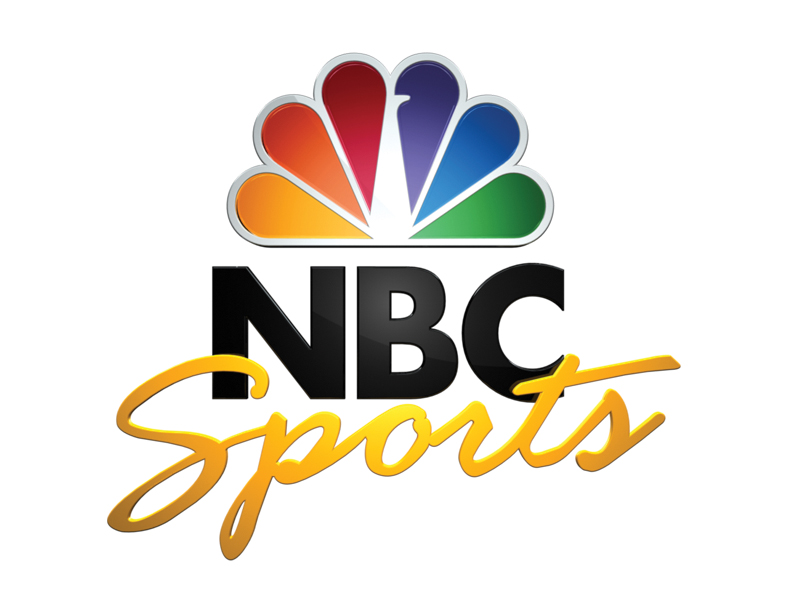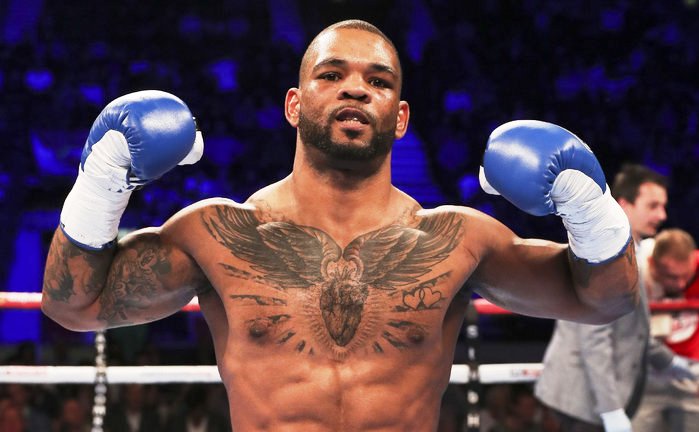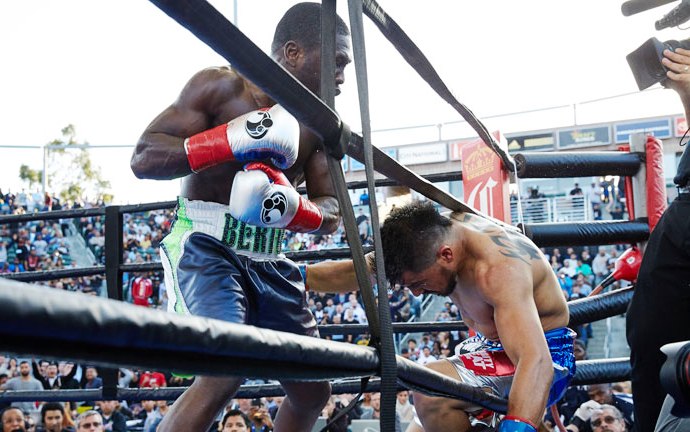The Al Haymon NBC Deal: Five Thoughts
1. The economics are intriguing and provide, in theory, a framework which works to the benefit of fans. The crux of the deal is that Haymon pays NBC for the right to air fights on free television and will sell advertising space to be broadcast during his programming. Thus, the more people who tune in to watch Haymon’s cards, the higher price Al can command from advertisers. In other words, there’s a built-in motivation for Al to stage the most interesting and exciting matches possible. If he doesn’t, his own pocket is going to take a hit.
It’s an acknowledged truth that boxing has become a niche sport, with flimsy growth prospects in the North American market under the cable/PPV model we’ve relied on for the past 20 years or more. Of course, the festival of mismatches and flagrant robberies we saw in 2014 doesn’t help. Haymon’s power play is as daring an attempt to shake up the status quo as we’ve seen in a long time, and if he’s is as cunning a businessman as his reputation implies, he’ll stay far away from the sorts of shenanigans that made 2014 a wasteland for the sport and instead stage exciting matches that get people talking about boxing around the water cooler the following Monday. If boxing’s going to make any sort of comeback into mass consciousness in the US, that’s what will get it there.
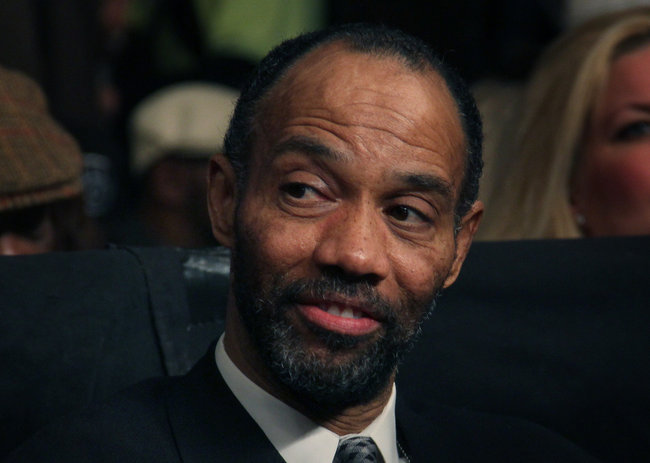
2. If I understand things correctly, the way it will work from now on for the Haymon stable—based on lots of speculation, wishful thinking, and comments from Showtime boss Stephen Espinoza—is that Haymon Boxing will become something of a three-ring circus, offering fights between different calibers of fighters in each of them. The first stage would be on NBC, where the masses will get the chance to tune into some boxing for free, familiarizing themselves with potential stars and acquainting themselves with title-holders before they become household names. The second stage would be the Showtime network, where established names will compete in higher-profile bouts for the chance to become legit stars and claim a stake in the PPV sweepstakes, which will remain the grandest stage of all.
To illustrate, take the Robert Guerrero-Keith Thurman fight that will headline Haymon’s first NBC card on March 7. While “The Ghost” fought Floyd Mayweather, his appeal remains limited as casual fans know him only from that one contest, in which Money May made him look like a bum. But “The Ghost” is far from a bum, as is Keith Thurman, who also remains largely unknown to the masses. Despite his talent, “One Time” spent 2014 waiting in vain for a breakthrough win that could make his name resonate with a larger audience. Appearing on NBC against a proven veteran in Guerrero gives him that opportunity, and given that Thurman is one of those potential stars mentioned above, Haymon will most likely be rooting for “The Thurminator” come March 7.
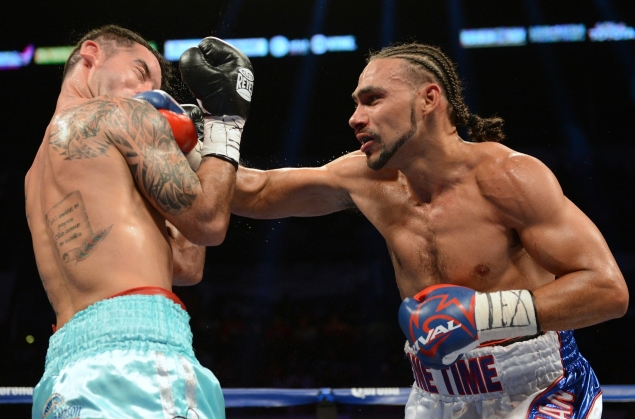
3. Further, Guerrero vs. Thurman is an entertaining battle between quality prizefighters that is not easy to call, exactly the kind of fight you want to showcase to as large an audience as possible, which is what the NBC deal is all about. Regardless of who wins, the victor will move on to bigger and better things, perhaps even getting a chance to return to Showtime or as an undercard attraction on a PPV show. In fact, we could think of the NBC shows as auditions for prizefighters to see if they’re ready for the bigger cable and PPV cards. This kind of set up could also motivate fighters to take more risks, fully aware that an eye-catching performance in front of a large NBC audience will translate into both increased popularity and bigger paychecks.
That being said, as time goes on, consistently maintaining a fan-pleasing balance through all three stages will be the biggest challenge Al will face, especially since the guy doesn’t have the best track record when it comes to matchmaking. It remains to be seen whether the dismal 2014 he offered us was due to his being busy ironing out the kinks on this grand scheme he just unveiled, but the fact remains that to get a serious return on his NBC investment, Haymon will have to make every effort to stage entertaining fights and grow his fanbase.
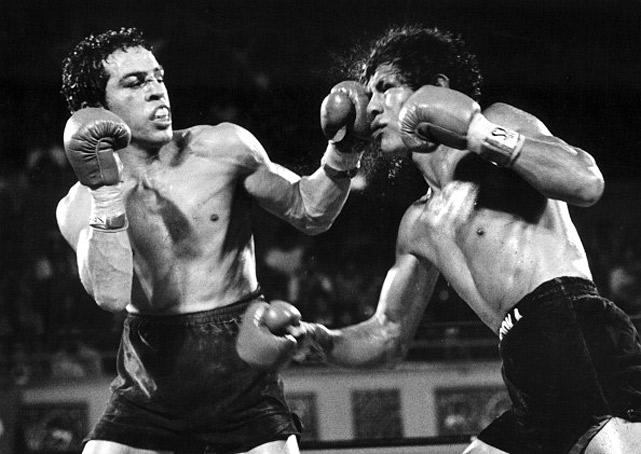
4. It’s interesting that Haymon’s plan to “bring boxing back,” pays homage to the sport’s past rather than embracing the future. Yesterday at the media event where the NBC deal was unveiled, Tommy Hearns, Roberto Duran and Sugar “Ray” Leonard all stood on the stage to remind us that in the 70s and 80s boxing was so popular that great fighters such as themselves plyed their trade on free TV. But back then, there was a self-reinforcing mechanism at work in which a mass audience paid attention to boxing because it was easy to find great fights to watch, and the networks were happy to broadcast great fights because a whole lot of people could be counted on to tune in.
Here we are decades later, and Haymon is betting on a formula that, while wildly successful back then, has never been tested in the internet age. The way we consume sports today is entirely different from what it was even 20 years ago, but somehow boxing refuses to acknowledge this in any way. Taking into account not only the internet, but also the fact that boxing is at a popularity-nadir in the US while tremendously popular in Quebec, the UK, Mexico and a whole lot of Latin American and Asian countries, perhaps an online strategy that made content available internationally should’ve been considered as well? How about on-demand online replays? How about PPV streams? Then again, we’re talking about a sport that isn’t even thinking about using instant replay, so maybe pugilism’s aversion to anything innovative is just part of its DNA.
5. For all the fanfare surrounding Haymon’s announcement, there is one thing that hasn’t changed, and may have in fact been aggravated: the Cold War. In making his NBC move, Haymon not only took on Richard Schaefer from Golden Boy Promotions, but also severed all ties between his fighters and Oscar De La Hoya’s company. Haymon’s ambition in amassing his 150+ stable of prizefighters also reflects his desire to keep most of the matchmaking strictly in-house, which means you shouldn’t expect to see many, if any, Golden Boy or Top Rank fighters in the ring with Haymon fighters on NBC. Obviously, this is to the detriment of the sport, since a major factor in the appeal of boxing is the search for the undisputed champion in a given weight class.
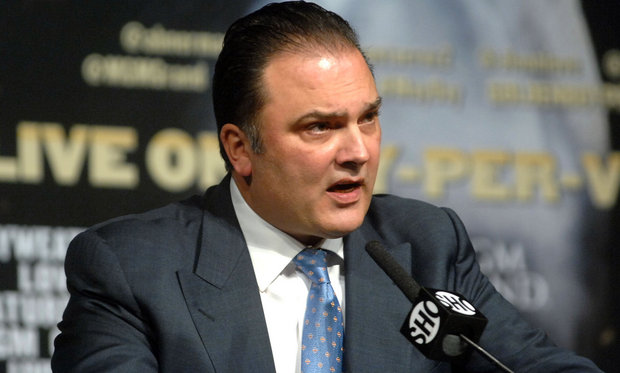
Of course, if I were Al Haymon and had spent all that money in signing all those fighters, and then spent another princely sum in securing NBC broadcasting rights, I sure as hell wouldn’t give anyone other than my own fighters the chance to profit from that exposure. It’s an entirely rational course of action, and it will give him an advantage in building up his stable and creating attractive matches which lead to huge paydays for everyone under his umbrella.
But if Haymon refuses to do business on the bigger stages with fighters managed and promoted by his competitors, fans will be denied the chance to see the best fighting the best, and instead will have to settle for seeing good scraps every once in a while. The fact that politics and business rivalries often stomp over attempts to make big fights happen plays a big part in the disenchantment of the casual fans, but this point seems entirely lost on Haymon, despite his claims to want to bring boxing back to the masses. But it won’t be long before we find out how casual fans react to the realization that unification bouts and best-vs-best fights are impossible to make because of business allegiances. Then again, maybe the cunning and ambitious Al Haymon indeed has it all figured out. For the sake of his latest business venture, and the sake of the sport, we sincerely hope that is the case.
— Rafael Garcia

